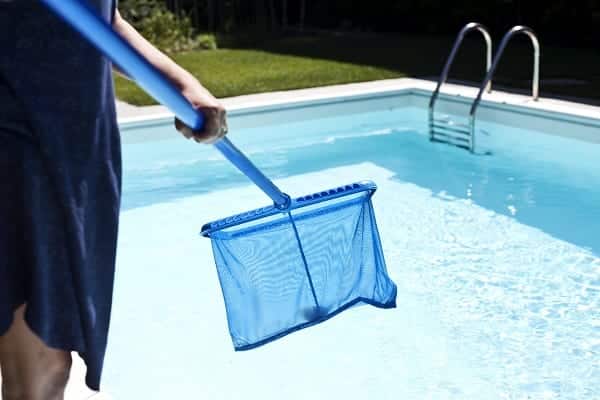The temperatures in Scottsville, Arizona have finally dipped into the double digits. Does this mean the triple-digit temperatures are a thing of the past? The swimming pool contractors from SwimRight Pool Service & Repair aren’t sure but if you’re wondering “is it time to close the swimming pool?” they have some items to consider.
In Arizona one of the beautiful things is that you just might be able to keep your pool open year-round. Yes, there are the cool desert nights but with the help of a pool heater, you might just be able to still swim every day.
Is it time to close the swimming pool?
What goes into winterizing and closing the pool for the season? It’s not too complicated, but it can be a long-ish process. Closing the pool is one of those tasks that even pool owners who clean and maintain their pools all season long will reach out to us and have us close the pool for them.
Here are some of the steps involved in a seasonal pool closing:
- The pool is winterized before it’s closed. This means you will add a phosphate remover and that will keep algae from growing during the winter. Closing the pool when the temperatures are consistently lower than 65 degrees will help prevent the risk of algae bloom.
- The pool should be thoroughly brushed and then vacuumed. Closing the pool requires it to be completely cleaned before you stop using it for the winter months.
- Lower the water levels. The reason for lowering the water levels is to prevent freezing from damaging the pool. If you live in an area of the country where it freezes, lower the water four to six inches below the skimmer. If you live in an area of Arizona where it doesn’t freeze the water should be filled, rather than lowered.
- The water chemistry will be tested and balanced. It may seem odd to put chemicals into a pool that you’re not swimming, but you do want to close the pool with the water as clean as it can be.
- The pool water will also be super chlorinated to kill any lingering bacteria.
- Your pool contractor may recommend a complete backwash of the pool filter. If you live in an area of the country where it freezes you will want to make certain there is no water in the filter or the lines because it could freeze and crack.
- The pool water lines will be drained. Antifreeze will be added to the lines of those pools in areas of the country where it freezes. The pool pump, filter and pool heater will be drained of all water and stored in a safe area for the off season.
- Before the winter cover is put in place, air pillows or floating gallon milk jugs will be put in the water. These items keep the water from freezing completely, expanding and damaging the pool structure.
- The cover will be put in place and lashed down to prevent it from blowing off during the winter. You may want to install a leaf net if you’re in an area of the country where the leaves are still falling from the trees. This makes it easy to remove leaves before they get heavy, freeze and potentially damage the cover.
- Take a look at the pool during the off months. Just because it’s closed, doesn’t mean you don’t want to pay it some attention during the off season. Assure yourself the cover is secure, there are no leaves, standing water or ice on the cover. Do not remove chunks of ice — you run the risk of damaging the cover. If there is standing water, remove it with a shop vac.
Call us if you’re ready to close your pool for the season.


